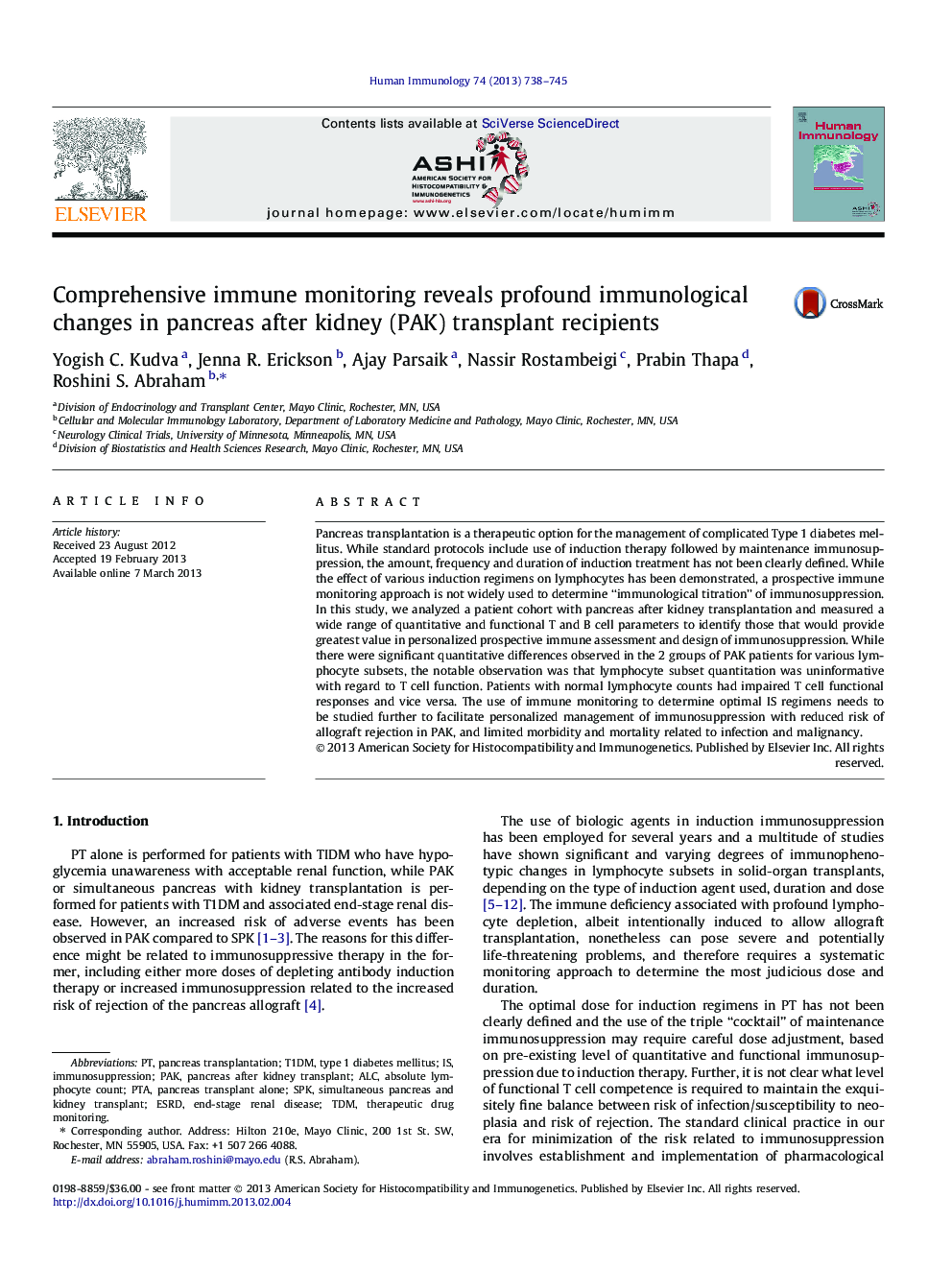| Article ID | Journal | Published Year | Pages | File Type |
|---|---|---|---|---|
| 3350681 | Human Immunology | 2013 | 8 Pages |
Pancreas transplantation is a therapeutic option for the management of complicated Type 1 diabetes mellitus. While standard protocols include use of induction therapy followed by maintenance immunosuppression, the amount, frequency and duration of induction treatment has not been clearly defined. While the effect of various induction regimens on lymphocytes has been demonstrated, a prospective immune monitoring approach is not widely used to determine “immunological titration” of immunosuppression. In this study, we analyzed a patient cohort with pancreas after kidney transplantation and measured a wide range of quantitative and functional T and B cell parameters to identify those that would provide greatest value in personalized prospective immune assessment and design of immunosuppression. While there were significant quantitative differences observed in the 2 groups of PAK patients for various lymphocyte subsets, the notable observation was that lymphocyte subset quantitation was uninformative with regard to T cell function. Patients with normal lymphocyte counts had impaired T cell functional responses and vice versa. The use of immune monitoring to determine optimal IS regimens needs to be studied further to facilitate personalized management of immunosuppression with reduced risk of allograft rejection in PAK, and limited morbidity and mortality related to infection and malignancy.
